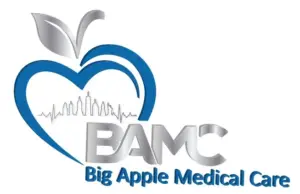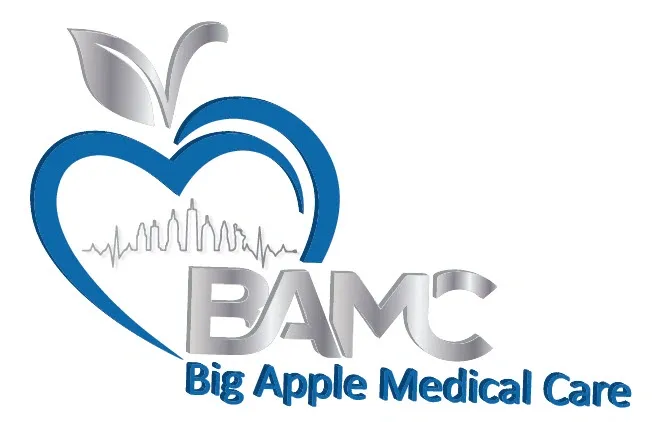Modern healthcare is not just about treating illness—it is about preventing disease, promoting wellness, and building long-term health strategies. Primary care and health screenings at Big Apple Medical Care, we believe that are two essential pillars of good health—must work hand in hand to deliver the best outcomes for patients. By connecting the dots between these two critical components, we provide our patients with a proactive approach to healthcare that emphasizes prevention, early detection, and personalized treatment.
The Role of Primary Care in Everyday Health
Primary care is the first point of contact for most patients in the healthcare system. Primary care providers (PCPs) act as health partners, focusing not just on immediate concerns but also on long-term wellness.
Key responsibilities of primary care include:
-
Comprehensive health evaluations and regular checkups.
-
Management of chronic conditions such as diabetes, hypertension, and asthma.
-
Preventive counseling on diet, exercise, and lifestyle changes.
-
Coordinating care with specialists when needed.
At Big Apple Medical Care, our primary care physicians go beyond treating symptoms. They develop personalized care plans tailored to each patient’s medical history, lifestyle, and health goals. This patient-centered approach ensures that care is continuous, coordinated, and focused on prevention.
The Importance of Health Screenings
While primary care offers a holistic view of overall wellness, health screenings provide the essential data needed to make informed medical decisions. Screenings detect risk factors and early signs of disease before symptoms develop.
Some of the most important screenings include:
-
Blood pressure checks to identify hypertension.
-
Cholesterol tests for heart disease prevention.
-
Diabetes screenings to monitor blood sugar levels.
-
Cancer screenings such as mammograms, colonoscopies, and Pap tests.
-
Bone density scans for osteoporosis detection.
-
Infectious disease testing, including HIV, hepatitis, and sexually transmitted infections (STIs).
These routine screenings form the foundation for early diagnosis, allowing patients to take action before conditions become serious or harder to treat.
How Primary Care and Health Screenings Work Together
Primary care and screenings are most effective when they function as integrated elements of a patient’s healthcare plan. Here’s how they complement each other:
-
Primary care identifies risks: During checkups, PCPs evaluate family history, lifestyle habits, and symptoms, then recommend appropriate screenings.
-
Screenings provide data: Test results confirm risks or detect conditions early, giving PCPs the information needed to tailor treatments.
-
Ongoing monitoring: PCPs track screening results over time, allowing them to adjust care plans as health needs evolve.
-
Preventive action: Together, they enable proactive measures such as lifestyle changes, medications, or referrals to specialists before issues escalate.
This collaboration between primary care physicians and diagnostic screenings ensures that patients receive the most accurate, effective, and timely care possible.
Benefits of Integrating Primary Care and Screenings
When patients commit to both primary care visits and regular screenings, they experience significant health benefits, including:
-
Early detection of diseases: Screenings uncover conditions at their earliest stages, when treatments are most effective.
-
Improved management of chronic conditions: Regular monitoring ensures conditions like diabetes or heart disease remain under control.
-
Reduced healthcare costs: Preventing illness or catching it early reduces the need for expensive emergency care or hospitalizations.
-
Personalized health strategies: Combining primary care evaluations with test results allows for customized treatment plans.
-
Peace of mind: Patients gain confidence knowing that their health is being actively monitored and managed.
Examples of Primary Care and Screenings in Action
To better understand how this collaboration works, consider a few real-life scenarios:
-
Case 1: Hypertension prevention
A patient visits their PCP for a routine checkup. Elevated blood pressure readings prompt the physician to order additional cardiovascular screenings. With early intervention, lifestyle adjustments, and medication, the patient avoids more severe complications such as stroke or heart attack. -
Case 2: Diabetes management
Through regular screenings, a patient’s rising blood sugar levels are identified before the onset of type 2 diabetes. Guided by their primary care provider, the patient adopts dietary changes and exercise routines, preventing progression to a chronic condition. -
Case 3: Cancer detection
A primary care physician schedules a colonoscopy based on a patient’s age and family history. Early-stage colon cancer is detected and treated successfully, demonstrating the life-saving value of screenings.
These examples highlight how timely screenings combined with consistent primary care transform patient outcomes.
Primary Care as a Hub for Coordinated Care
Another major advantage of primary care is its role in coordinating healthcare services. Test results from screenings can be complex and may require specialist care. Primary care providers act as navigators, ensuring patients receive appropriate referrals and follow-up.
For example:
-
Abnormal cholesterol results may lead to a referral to a cardiologist.
-
A suspicious mammogram might require consultation with an oncologist.
-
Bone density results could involve collaboration with an endocrinologist.
This coordination ensures that patients do not fall through the cracks and that every piece of their healthcare puzzle fits together.
The Preventive Care Connection
At Big Apple Medical Care, we emphasize preventive care as the cornerstone of long-term health. Primary care and screenings are proactive steps that help patients avoid illness rather than simply treating it after it develops.
Preventive care benefits include:
-
Maintaining a healthy lifestyle through counseling and education.
-
Reducing risks of chronic diseases with early interventions.
-
Extending life expectancy and improving overall quality of life.
By connecting the dots between preventive care, screenings, and ongoing primary care, patients gain a comprehensive strategy to stay healthy year-round.
Why Choose Big Apple Medical Care
Patients trust Big Apple Medical Care because we provide:
-
Experienced primary care physicians dedicated to patient-centered care.
-
Comprehensive health screenings conducted with advanced diagnostic technology.
-
Seamless integration of screening results into personalized care plans.
-
Holistic preventive care strategies that focus on long-term wellness.
-
A supportive healthcare team that guides patients through every step of their journey.
Our mission is to ensure that every patient benefits from the full spectrum of healthcare—prevention, detection, disease treatment, and follow-up—all under one roof.
Final Thoughts
Primary care and health screenings are not separate practices—they are complementary forces that, when combined, create a powerful approach to patient health. By working together, they provide early detection, personalized treatment, and long-term wellness strategies that keep patients healthier and more confident in their care.
At Big Apple Medical Care, we believe in connecting the dots to give patients the best of both worlds: trusted primary care and comprehensive screenings that safeguard their health today and for years to come.







